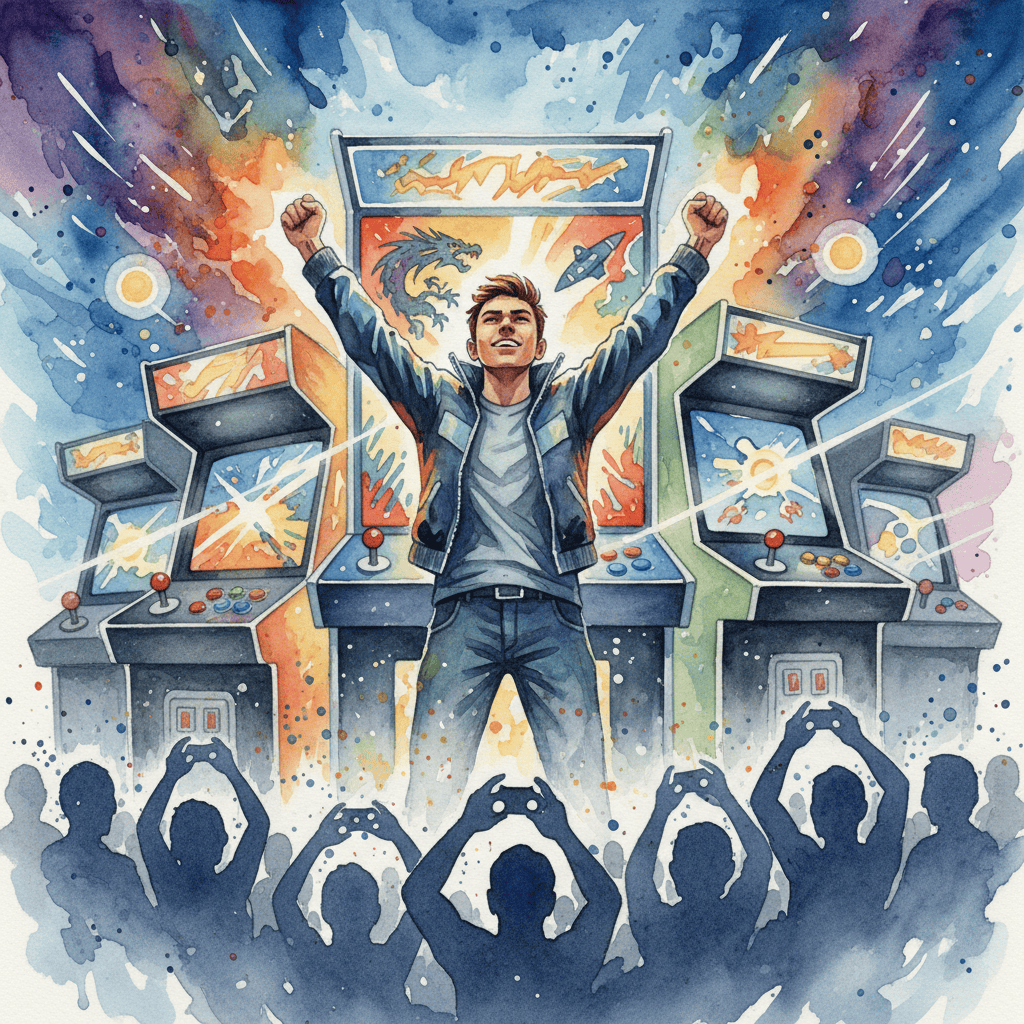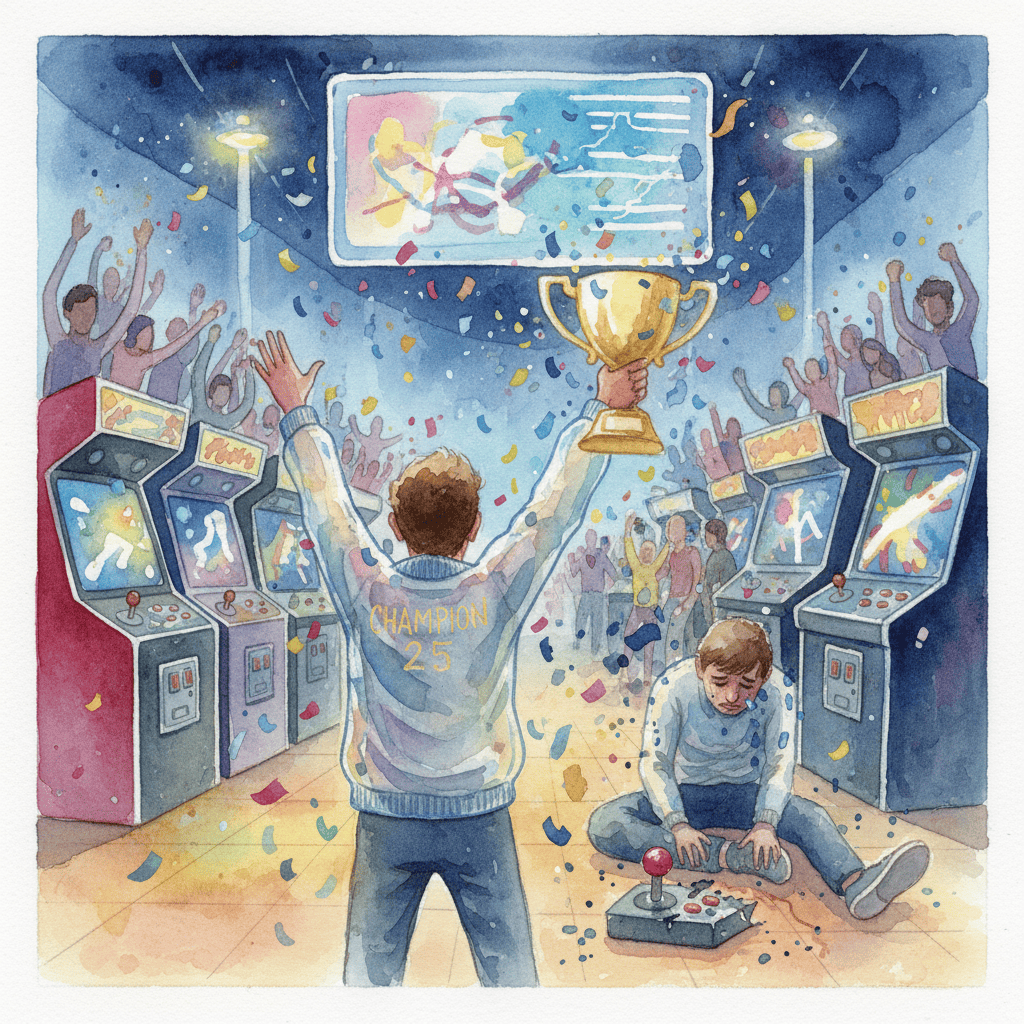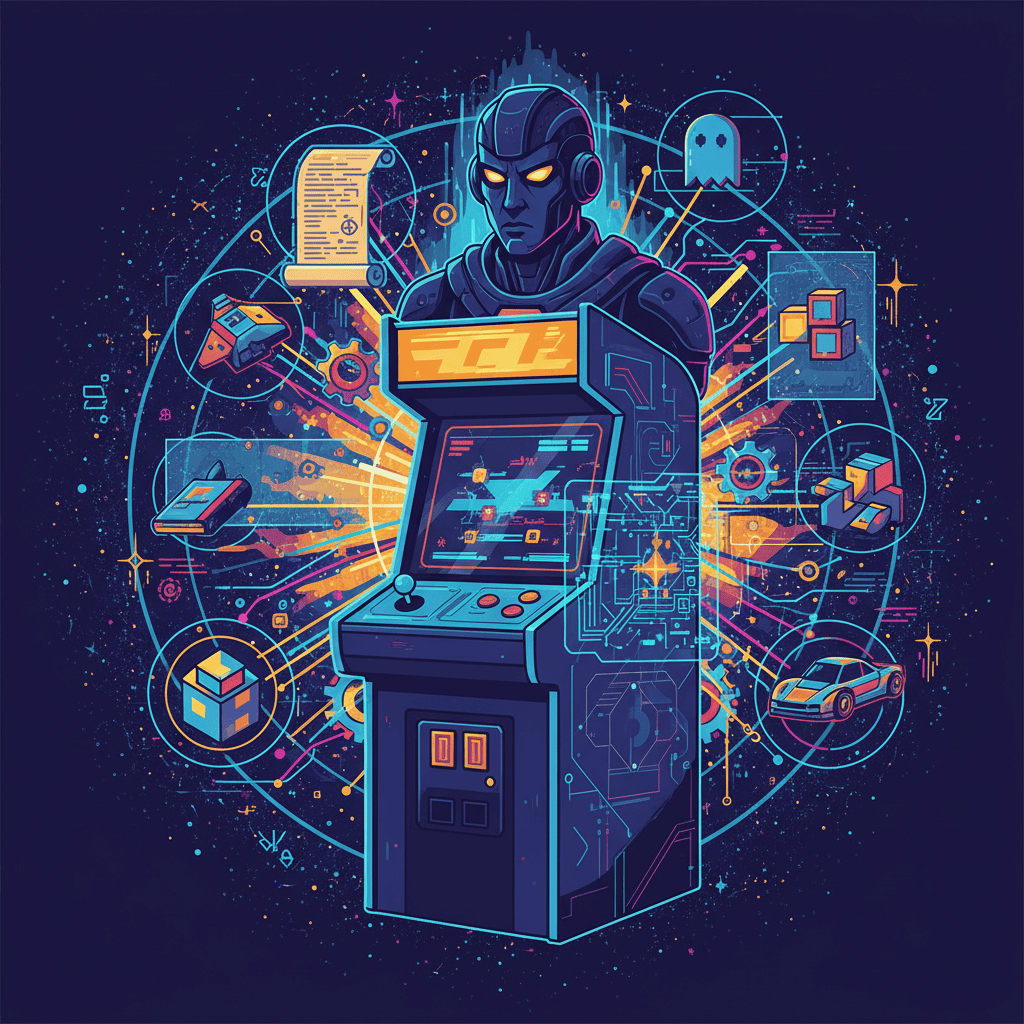The roar of the crowd, the flashing lights, the satisfying thunk of a perfectly timed punch—competitive arcade gaming has always been a thrilling spectacle. This guide delves into the strategies and skills needed to conquer the leaderboard, from classic fighting games to modern rhythm-based challenges. We’ll explore what it takes to truly dominate the competitive arcade scene, regardless of your chosen title. The rise of competitive arcade gaming, though sometimes overshadowed by its console and PC counterparts, has a rich history and a bright future.
The Evolution of Competitive Arcade Gaming
The golden age of arcades witnessed the birth of legendary competitive scenes. Games like Street Fighter II and Mortal Kombat transformed arcades into battlegrounds, fostering intense rivalries and a vibrant culture of skill-based competition. This era laid the foundation for what we now consider competitive arcade gaming. These early games emphasized reaction time, strategic thinking, and, of course, mastering the nuances of each unique game’s mechanics. Later, games like Dance Dance Revolution introduced a new dimension, demanding physical dexterity and stamina alongside strategic play. The rise of esports, while primarily focused on online gaming, has also subtly invigorated the competitive arcade scene, with some titles and tournaments bridging the gap between physical and online play.
Core Arcade Skills for Competitive Success
Dominating the arcade scene requires a blend of technical skills and strategic thinking. Improving your arcade skills hinges on several key areas:
- Reaction Time: This is paramount in fast-paced fighting games and rhythm games. Regular training, both in-game and through external reaction-time exercises, is crucial.
- Hand-Eye Coordination: Precise movements are essential, particularly in fighting games where timing and accuracy determine victory.
- Strategic Thinking: Understanding your character’s strengths and weaknesses, anticipating your opponent’s moves, and adapting your strategy accordingly is vital for consistent wins. This also includes mastering basic arcade strategy and understanding the game’s meta.
- Mental Fortitude: Competitive gaming can be stressful. Maintaining composure under pressure is key to consistent performance. Improving focus and managing anxiety are vital aspects of any training regimen.
Mastering Specific Game Mechanics
Developing expertise in a chosen game requires dedicating time to understanding its unique mechanics. Whether it’s mastering special moves in Street Fighter, chaining combos in Tekken, or maintaining rhythm in Dance Dance Revolution, a deep understanding of the game’s internal systems is crucial. This dedication allows for better implementation of competitive arcade tips and strategies. Many competitive players meticulously study frame data, input timing, and character matchups to gain an edge over their opponents.
Winning Strategies for Different Arcade Game Genres
The strategies for mastering competitive arcade games vary considerably across different genres. Here’s a breakdown:
| Game Genre | Winning Strategies | Example Games |
|---|---|---|
| Fighting Games | Learn character matchups, practice combos, master defensive techniques, adapt your strategy. | Street Fighter, Tekken, Mortal Kombat |
| Rhythm Games | Improve rhythm and timing, practice footwork, learn advanced techniques, maintain stamina. | Dance Dance Revolution, Guitar Hero |
| Puzzle/Skill Games | Develop quick thinking, problem-solving skills, learn advanced techniques, practice consistency. | Tetris, Pac-Man Championship Edition |
Level Up Your Competitive Arcade Game Performance
To significantly improve your competitive arcade game performance, consider the following:
- Dedicated Practice: Consistent practice is essential. Set aside regular time for focused training.
- Analyze Your Gameplay: Watch replays, identify weaknesses, and focus on improvement.
- Study Top Players: Observe how professionals play to learn new techniques and strategies.
- Join a Community: Engage with other players to share knowledge, receive feedback, and participate in friendly competitions. Learning how to improve my competitive arcade game performance involves consistent self-evaluation.
People Also Ask: Frequently Asked Questions about Competitive Arcade Gaming
How to get better at competitive arcade games? Consistent practice, analyzing your gameplay, studying top players, and joining a community are essential steps in improving.
What are the best strategies for competitive arcade games? Strategies vary across genres, but generally involve mastering the game’s mechanics, understanding matchups (in fighting games), and adapting your approach based on your opponent.

What are some tips for winning at competitive arcade games? Practice, analyze your gameplay, understand your character’s strengths and weaknesses, and stay calm under pressure.
How can I improve my reaction time in arcade games? Use online reaction time trainers and focus on practicing in-game scenarios requiring quick responses.
Which arcade games are most competitive? Fighting games like Street Fighter and Tekken are consistently popular choices. Rhythm games like Dance Dance Revolution also boast highly competitive scenes.
What are common mistakes in competitive arcade gaming? Predictable playstyles, neglecting defense, and poor resource management are common pitfalls.
How can I find competitive arcade events near me? Check online event listings, arcade websites, and social media for local tournaments.
What equipment is recommended for competitive arcade gaming? High-quality controllers (arcade sticks are often preferred for fighting games), comfortable seating, and a good monitor (or in-arcade display) are all crucial components.
Take Action: Dominate the Arcade Scene
Improving your competitive arcade gaming skills is a journey, not a destination. By focusing on the core skills, employing effective strategies, and embracing continuous improvement, you can climb the leaderboards and ultimately achieve mastery. Remember that mastering arcade games takes dedication and a genuine passion for the competition.
Key Takeaway: Consistent practice, strategic thinking, and a deep understanding of your chosen game are the cornerstones of competitive arcade excellence. Don’t just play—master the game.
Mastering the Arcade: A Guide to Competitive Excellence



![World's top competitive arcade gaming player, [Player's Name], intensely focused during a tournament match.](https://gameblog.index-men.com/wp-content/uploads/2025/09/exclusive-interview-a-chat-with-the-worlds-top-competitive-arcade-gaming-player-1-1757166512.png)
